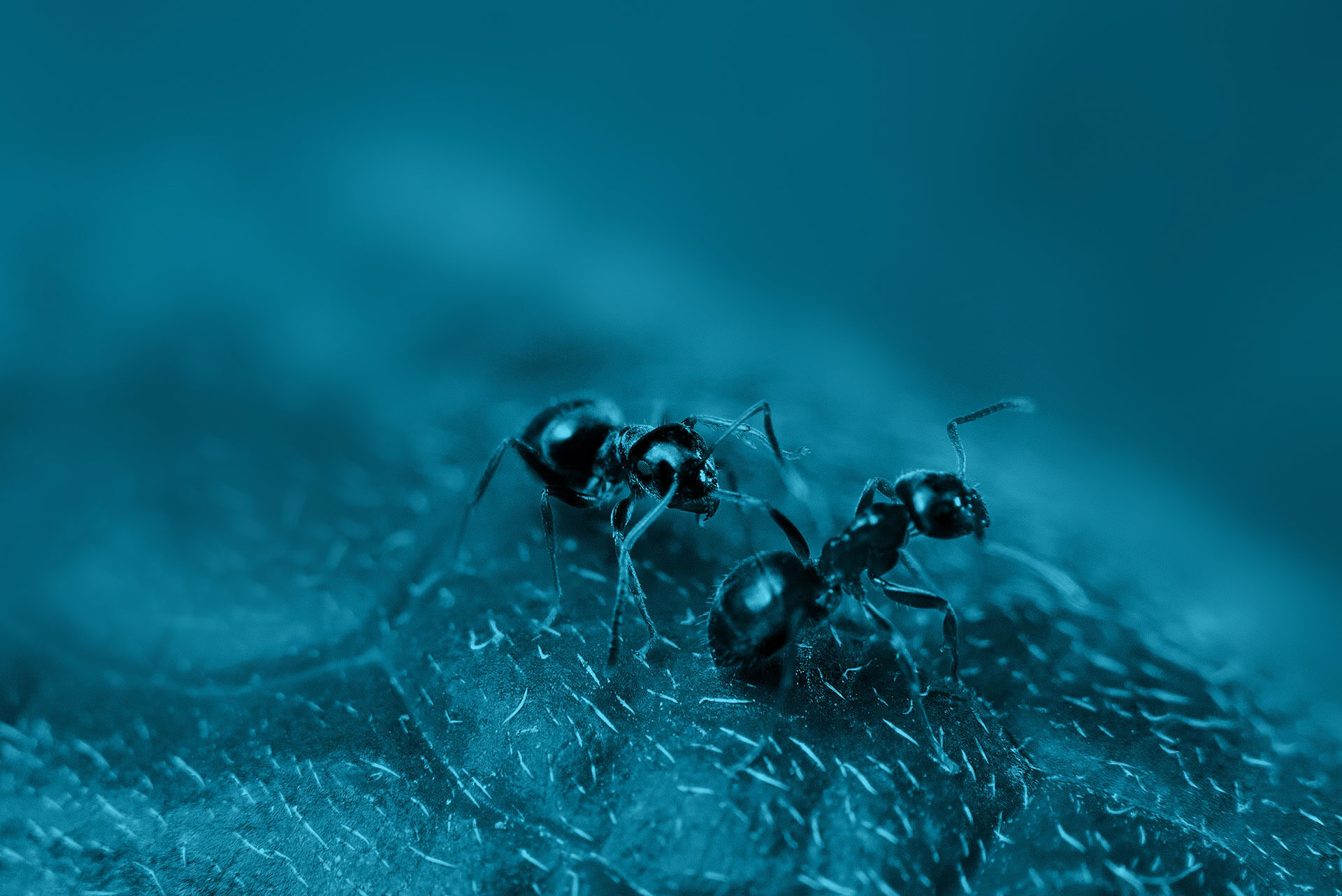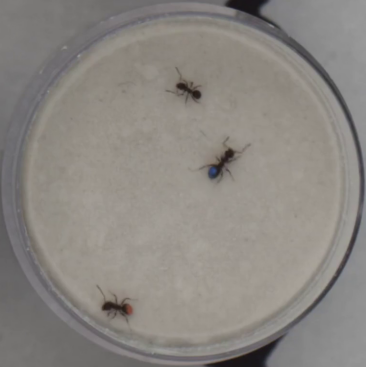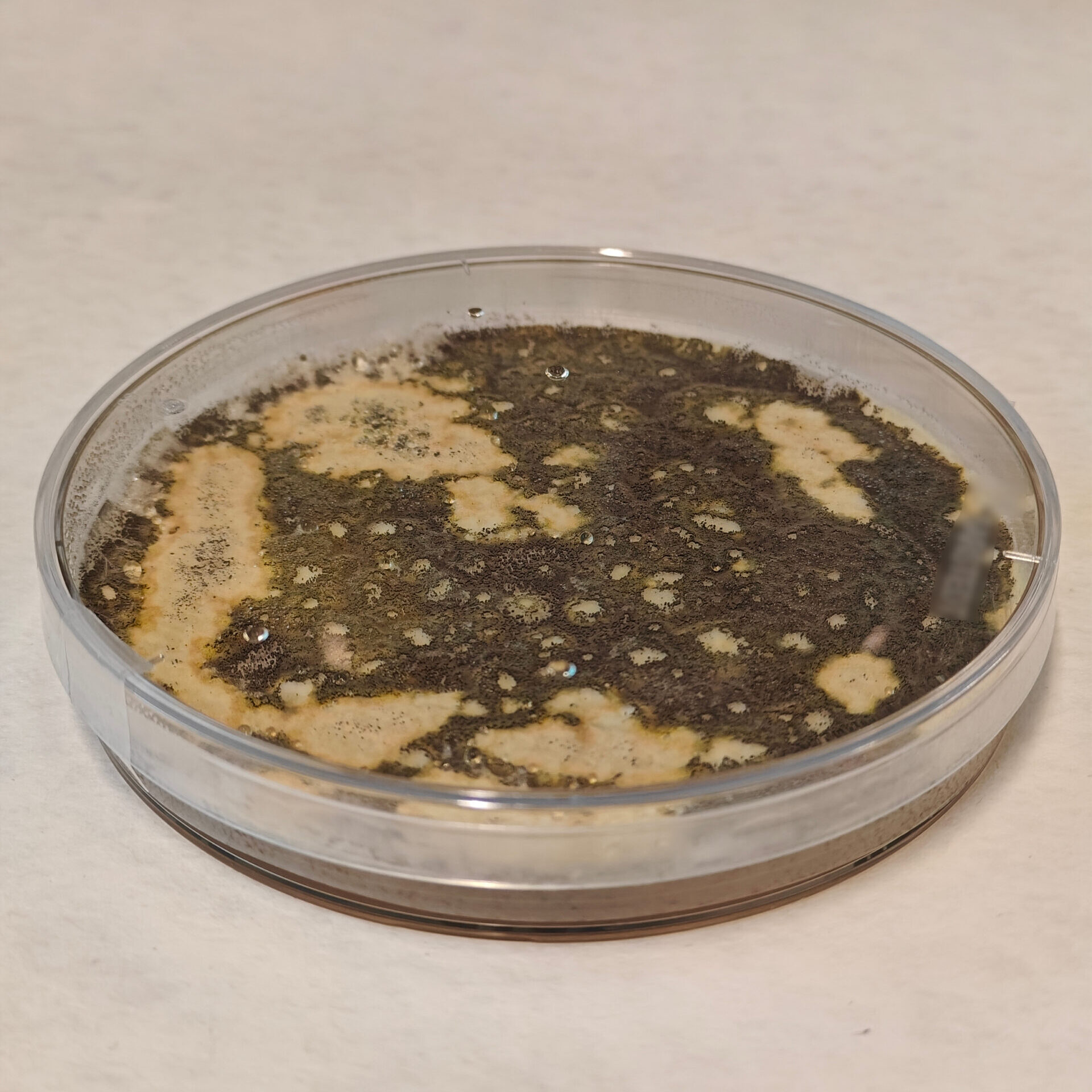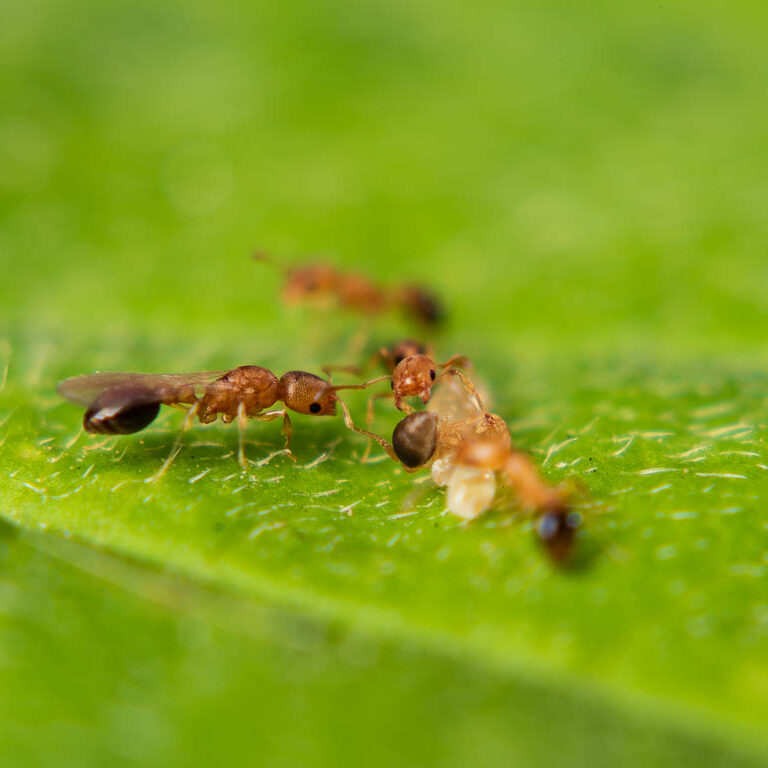
Research
Social immunity
In addition to the individual immunity of all colony members, social insects protect their colonies from disease by cooperative defences. This social immunity acts to prevent contamination of the colony, infection of colony members and disease transmission, hence to improve fitness of the colony.
The concept
Protection of the superorganism
Social insect colonies are „superorganisms”. Like cells in a body, the different insects specialize on different tasks: queens and males reproduce, whilst the workers are typically sterile and perform colony maintenance tasks. Social immunity describes how the colonies as reproductive entities are protected from disease.
Sanitary care
Preventing current infection
Pathogen-exposed ants receive immediate sanitary care by their healthy colony members, effectively preventing infection of the contaminated individuals. Sanitary care combines mechanical removal of infectious particles by grooming and antimicrobial sanitation.
Nest hygiene
Preventing colony contamination
Pathogens need to enter and establish in the colony to later cause infection of colony members. To prevent colony contamination, ants constantly and prophylactically disinfect their nest, particularly their brood pile, with antimicrobials like their formic-acid rich poison.
Treating infection
Preventing pathogen replication
Ants treat infections and thereby prevent pathogen replication and hence disease transmission through the colony. They are able to detect infections already during the non-infectious incubation period by chemical cues and to treat them by complex behaviors and use of antimicrobials. This allows them to prevent the pathogen from producing new infectious particles, a highly efficient way to stop disease spread through the colony.
Social immunisation
Preventing future infection
Social contact with infectious colony members causes pathogen transmission to previously healthy colony members. Often, this cross-contamination only leads to low-level infection of the colony members, which does not cause disease but induces a protective immunisation.
Organisational immunity
Preventing disease spread
Pathogens use the social interaction networks of their hosts for transmission to new host individuals. Social insect colonies react to pathogen entry into the colony by re-organisation of their social interaction networks. Contaminated ants, but also their peers, reduce contact to the remaining colony members. This leads to a highly efficient reduction of disease spread through the colony.
Our research
-
(NeurIPS, 2024) Smoke and Mirrors in Causal Downstream Tasks
This paper looks at the causal inference task of treatment effect estimation, where the outcome of interest is recorded in high-dimensional observations in a Randomized Controlled Trial (RCT). Read more
-
(PNAS, 2024) Frequent horizontal chromosome transfer between asexual fungal insect pathogens
This study demonstrates that horizontal transfer of entire chromosomes, previously thought unlikely, occurs both within and across species in the fungus Metarhizium, providing a competitive advantage to recipient strains under certain conditions. Read more
-
(Curr Biol, 2024) Fungal infection alters collective nutritional intake of ant colonies
This study explores how the role of amino acids and carbohydrates in a host-parasite system: the Argentine ant, Linepithema humile, and the entomopathogenic fungus, Metarhizium brunneum. Read more
-
(BMC Ecol Evo, 2023) Trade-offs between immunity and competitive ability in fighting ant males
The study investigates the trade-offs between investment in the immune system and the ability to compete with rival males. Read more



